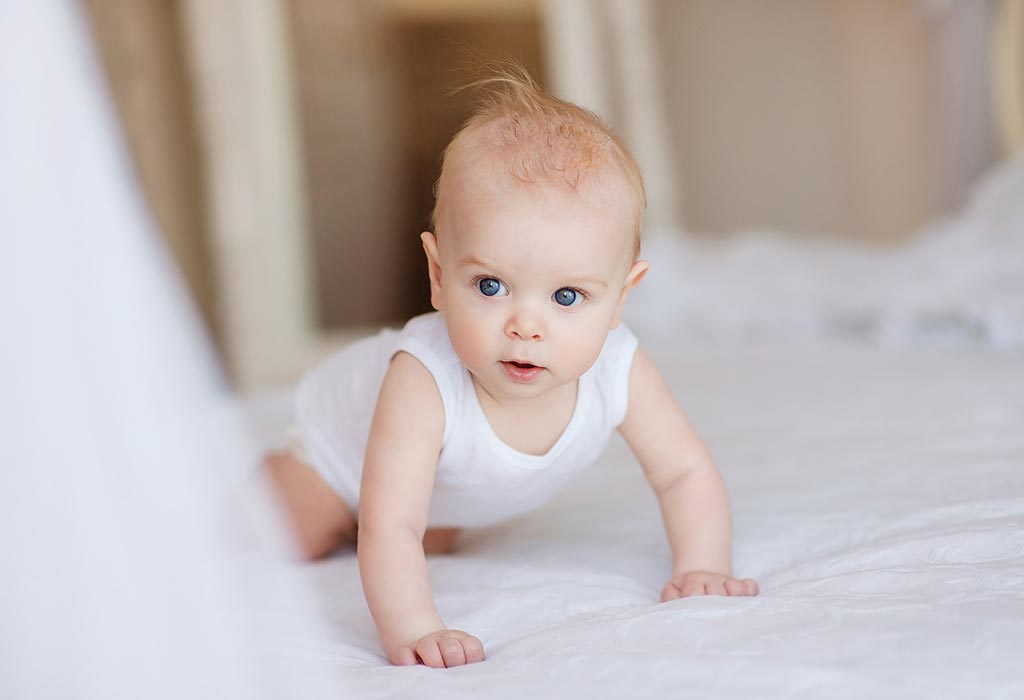 Source: bing.com
Source: bing.comYour baby is now halfway through their first year of life, and there are plenty of exciting milestones to look forward to! At six months old, your little one is becoming more aware of their surroundings and starting to develop some new skills. Here’s what you can expect and how you can help support your baby’s development at this stage.
Table of Contents
Physical Development
At six months old, your baby is likely to be able to:
- Sit up with support
- Roll over from their tummy to their back, and vice versa
- Reach and grab for objects
- Bear weight on their legs when held upright
You can help support your baby’s physical development by:
- Providing plenty of tummy time to help strengthen their neck and upper body muscles
- Offering toys that encourage reaching and grabbing, such as soft blocks or rattles
- Using a baby carrier or sling to carry your baby upright and allow them to bear weight on their legs
Cognitive Development
At six months old, your baby is starting to become more aware of their surroundings and may show interest in:
- New objects and people
- Mirror images of themselves
- Making noises and babbling
You can help support your baby’s cognitive development by:
- Providing plenty of stimulation through toys, music, and conversation
- Encouraging your baby to explore their environment and try new things
- Playing games like peek-a-boo or hide-and-seek to help develop object permanence
Social and Emotional Development
At six months old, your baby is starting to develop their own personality and may show a range of emotions, such as:
- Happiness and excitement
- Sadness or frustration
- Separation anxiety when away from familiar caregivers
You can help support your baby’s social and emotional development by:
- Providing plenty of love, cuddles, and attention
- Encouraging your baby to interact with other people and babies
- Establishing routines and consistency to help your baby feel secure
Feeding and Nutrition
At six months old, your baby may be ready to start exploring solid foods in addition to breast milk or formula. Signs that your baby is ready for solids include:
- Being able to sit up with support
- Showing interest in food and reaching for it
- Having good head and neck control
You can introduce solid foods gradually, starting with simple purees or mashed fruits and vegetables. It’s important to wait a few days between introducing new foods to check for any signs of allergy or intolerance.
Conclusion
Your baby is growing and changing every day, and it’s exciting to watch their development unfold. By providing plenty of love, attention, and stimulation, you can help support your baby’s physical, cognitive, social, and emotional development at this exciting stage.
Remember to always talk to your pediatrician if you have any concerns about your baby’s development or feeding habits.
Frequently Asked Questions
Q: Should I be worried if my baby hasn’t hit all these milestones yet?
A: Every baby develops at their own pace, so don’t worry if your baby hasn’t hit all these milestones yet. However, if you have concerns, talk to your pediatrician.
Q: How can I encourage my baby to sit up on their own?
A: You can encourage your baby to sit up by providing plenty of tummy time, using a Boppy pillow or other supportive cushion, and practicing sitting with support.
Q: When should I start brushing my baby’s teeth?
A: You should start brushing your baby’s teeth as soon as they erupt, using a soft-bristled brush and water. Talk to your pediatrician or dentist for more information.
Q: How much solid food should my baby be eating at six months old?
A: Every baby is different, but you can start with small amounts of pureed or mashed foods and gradually increase as your baby’s appetite and interest in food develops.
Q: What if my baby doesn’t seem to like solid foods?
A: Don’t worry if your baby doesn’t take to solids right away. Keep offering a variety of foods and textures, and talk to your pediatrician if you have concerns.
